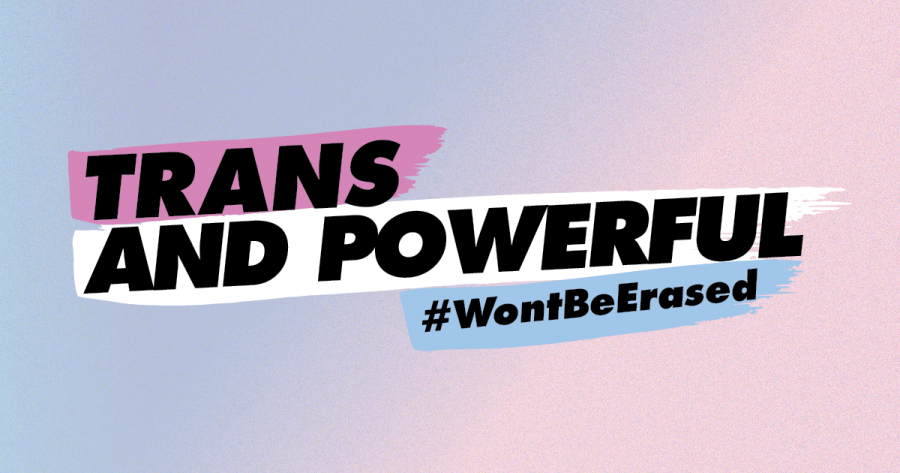Content warning: this article discusses violence against trans people and briefly mentions suicide amongst trans people.
Each year on the 20th of November is Transgender Day of Remembrance, and the lead up to this is Transgender awareness week. The idea of the week is to raise awareness of the issues and inequalities that trans people face, as well as showing support to the community and celebrating gains made for trans rights.
So, what does it actually mean to be trans? According to the National Centre for Transgender Equality, trans people have a different gender identity to what they were thought to be at birth. Therefore, a person may be born with male genitalia (and thus be gendered as male) but as they grow up, realise that they identify with being female or non-binary (where a person’s gender does not fit into the binary of male or female). The same can be said vice versa.
Firstly, let’s take a look at how the week came to be so widespread. In November 1998, Rita Hester, a black trans woman, was murdered in her Boston apartment. Members of the trans community in Rita’s area organised a vigil to remember her and many others before whose lives were lost due to transphobic violence. The incident sparked the beginning of a global movement to honour trans people whose lives were lost. To this day, her case remains unsolved, and her family have no justice.

Image credit: WBUR
Unfortunately, Rita’s case was one of many. One case that helped to set a legal precedent was the murder of Chanelle Pickett, another black trans woman living in Boston. Her killer, William Palmer, used the defence of “trans panic” in his 1997 trial to explain his actions. His justification for this was that he had such an emotional reaction to finding out that Chanelle was transgender, that he killed her for it. If this wasn’t bad enough, there were rumours at the time that Palmer had had unpleasant encounters with other transgender women also. Despite this, he only received a year sentence for assault and battery.

Image credit: NBC News
Although the movement has come so far compared to how it was in the 1990s, there’s still ample progress to be made. The Gender Reform Act 2004 was consulted for an update under Theresa May to make transitioning easier in terms of legal recognition. However, the update it was given this year stated that trans and non-binary people under the age of 18 would not get legal recognition of their preferred gender. This means that trans people still have to go through the gruelling process of becoming legally recognised, rather than being able to change their gender without a medical diagnosis of gender dysphoria first.
Although these changes will make the process less expensive, it becomes almost dehumanising; an individual would have to prove they were living as their preferred gender for at least two years, which isn’t always possible if they’re dealing with transphobia and cannot come out for their own safety.
Even though trans people’s brains align with their preferred gender, there’s still so much stigma around identifying as transgender, so much so that “family rejection increases the odds of substance misuse and suicide attempts in transgender and gender non-conforming people” as explained by the Human Rights Commission. Therefore, it’s essential to be as inclusive and supportive as possible around the topic of trans rights, because no-one deserves to be discriminated against for something they cannot choose.
There is plenty of research to be done on trans rights and why they’re so important, including measures people must take to be a good ally for trans people, including:
- Putting your pronouns in your social media profile, and asking people what their pronouns are, to help normalise it.
- Learn what not to ask a trans person, like if they’re going to/have already had surgery: this a very personal decision, and can be time-consuming and expensive to go through, depending on where you’re from. Not having surgery doesn’t invalidate a trans person’s identity. The same can be said for taking hormones: not every trans person wants to do this and nor do they have to do this to be still considered trans.
- Think about the use of gender-neutral alternatives when discussing certain topics, like abortion.
- Look up some trans icons or activists, like Laverne Cox, Georgina Beyer and Marsha P. Johnson.
- Look up charities that advocate for trans rights like Mermaids and the National Centre for Transgender Equality.

Lavern Cox
Credit: IMDb
Marsha P. Johnson
Credit: CNN.com
Georgina Bayer
Credit: WordPress.com
Even just researching this article, I’ve learnt so much about the history of trans rights, and although I knew beforehand that it was obviously important, reading about what trans people have to put up with for merely existing makes me want to be the best ally I can, and hopefully, this article makes you feel the same way.
Written by Tyler Archer
Feature image credit: glaad

